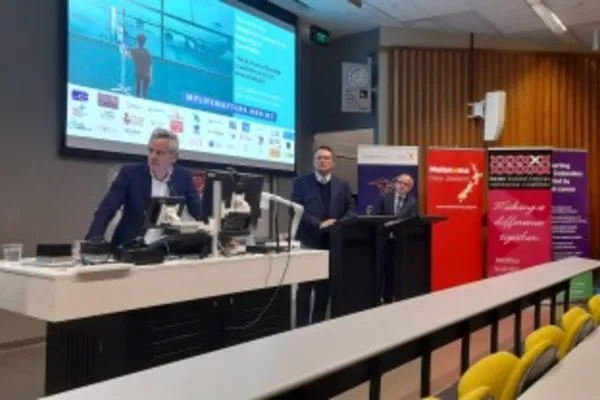My Life Matters – putting medicine access on the election agenda
24 Oct 2023
Everyone in New Zealand should have access to affordable and essential medicines. That was the shared vision at the heart of the My Life Matters campaign – a campaign led and supported by patient advocate organisations, including Rare Disorders NZ, representing more than 1 million patients in Aotearoa with cancers, rare disorders, diabetes, and other life limiting conditions.
The campaign, launched leading up to the general election, was spearheaded by patient advocate Malcolm Mulholland. Malcolm took to the road in September, talking to communities all over the motu about New Zealand’s medicine crisis and what can be done about it.
Why is there a crisis? New Zealand lags well behind other comparable OECD countries for public funding of medicines, ranking 32nd of a list of 32 OECD countries. Patients with severe and life-limiting conditions are having to make unimaginable decisions, because the medicine that could improve, or even save, their life is not funded in New Zealand. Should they uproot their family and move overseas to access the medicine? Should their family take on additional debt to preserve their life? Or should they somehow reconcile themselves to them or their child experiencing an avoidable early death and significantly diminished quality of life? These are scenarios that families who are already trying to cope with a life-changing diagnosis, should not have to face.
The My Life Matters call - for the New Zealand Government to start investing in new and breakthrough medicines at the same level as other OECD countries, is achievable, but requires political will, and engaging politicians was central for the campaign to see results.
The pinnacle of the road show was therefore a debate in Auckland between the health spokespeople of the major political parties, moderated by journalist Guyon Espiner. Not only was it an opportunity for the spokespeople to lay out their position on medicine access, but more importantly, it was an opportunity for patients, whanau and advocates to question the politicians directly on some of the specific challenges around medicine access.
Rare Disorders NZ Chair James McGoram was present at the debate and shares these reflections:
I was pleased that all the candidates were aware of the medicine access inequity faced by people with rare disorders and all of them to a greater or lesser degree engaged with this issue. All the parties present, with the exception of Act, committed to funding increases for Pharmac - with both Labour and National promising similar levels of funding as each other.
Unlike the other parties, both Act and NZ First supported the idea of dramatically restructuring or reforming Pharmac. The Greens largely supported Labour's position but would like to see less focus on 'austerity economics' and would seek to fund more medicines through mechanisms such as the wealth tax.
Many questions and some heartbreaking stories were shared by the audience, and some of those questions were answered well - many, however, were avoided. It's fair to say that - given the opportunity - most of the audience might have stayed until midnight to grill the candidates further. At the end of the evening, Malcolm sought the commitment of all of the candidates to return in 18 months’ time to do it again - which they all expressed eagerness to do.
Of course, the question raised by several at the event is what sticks with me: where is the urgency? While we are having all these fine discussions about reforms and reviews, people are still dying from preventable disease. What many of the audience I spoke to afterwards were wondering was: will any change be too late for me?
I hope the weight of that question sits with those candidates in the coming weeks.
None


